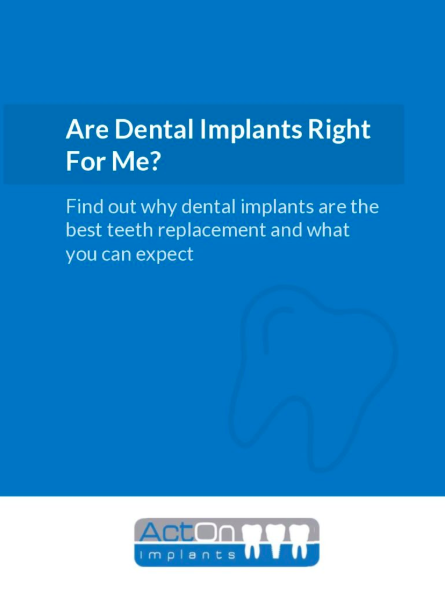
Dental implants are one of the most efficient ways to correct numerous dental problems including missing or damaged teeth. They also offer support for bridges, crowns, and dentures. By replacing your tooth’s root with a screwlike post and the damaged tooth with an artificial one, dental implants look and function like the real thing.
Are you considering dental implants but still have a few questions and concerns?
We’re here to share 4 important questions to ask your local dentist before committing to dental implants.
1. Are Dental Implants Safe?
Yes.
Dental implants have a long history of being one of the safest and most successful ways to repair damaged or missing teeth. The Journal of Amerian Dental Association reported that dental implants have a 95% success rate.
Because most implant “roots” are made of metal or titanium, they’re long-lasting and durable. They also fuse nicely to your jaw, creating a seamless fit.
It’s extremely rare for someone to have an allergic reaction to titanium or metal, but if you do, mention it to the dentist. Most professionals can offer an alternative material like metal-free zirconia.
2. What Are the Advantages of Dental Implants?
One reason dental implant surgery is so popular is because of the many benefits it offers.
Say goodbye to unsightly fillings or discolored veneers. Dental implants have the same appearance and structure as your natural teeth, which means the only thing people will notice is your beautiful smile.
Dental implants also function like natural teeth, making it easy to eat, speak, and smile with confidence.
Missing teeth can cause your jawbone to shrink. Dental implants prevent this by stimulating the jawbone and preserving its integrity.
Implants also prevent facial sagging by supporting your facial muscles, giving you a more youthful appearance.
3. Am I a Good Candidate for Dental Implants?
While not everyone is a good candidate for dental implants, most people are. A child’s jawbone is still growing and developing, making them ineligible for dental implant surgery.
The local dentist you choose will evaluate your condition to see if you qualify. Certain preexisting health conditions can slow down the healing process but may not disqualify you.
Things like smoking cigarettes, periodontal disease, diabetes, and high blood pressure will require several follow-up appointments and diligent post-operative care to ensure success.
Patients that wear dentures or have prior bone loss may need grafting to help build up the jawbone to support dental implants.
4. What Can I Expect From the Dental Implant Procedure?
Every patients’ dental implant procedure will look different based on their condition. Following the initial evaluation, the local dentist will remove any remaining tooth from the area.
Most dental implants are placed directly in the jawbone. If you require bone grafting, this is done first and must heal before the procedure can continue.
The next step is adding the implant. Over time, your jawbone grows around the implant. And after about 3 to 9 months, the implant will become a part of your natural gum line.
Some implants require a temporary crown followed by a more permanent fixture. You can also choose between a permanent or removable implant.
If you’re receiving multiple implants, a removable denture may be your best option.
A Qualified Local Dentist Will Put Your Mind at Ease
Oral surgery of any kind can be stressful. Knowing what to expect can help you remain calm and optimistic before climbing into the dentist’s chair.
Find a local dentist you can trust and are comfortable with.
Read our patient testimonials and see what satisfied customers are saying about our services. At ActOn Implants, we put your health, comfort, and happiness first.
Contact us today to schedule a consultation.

